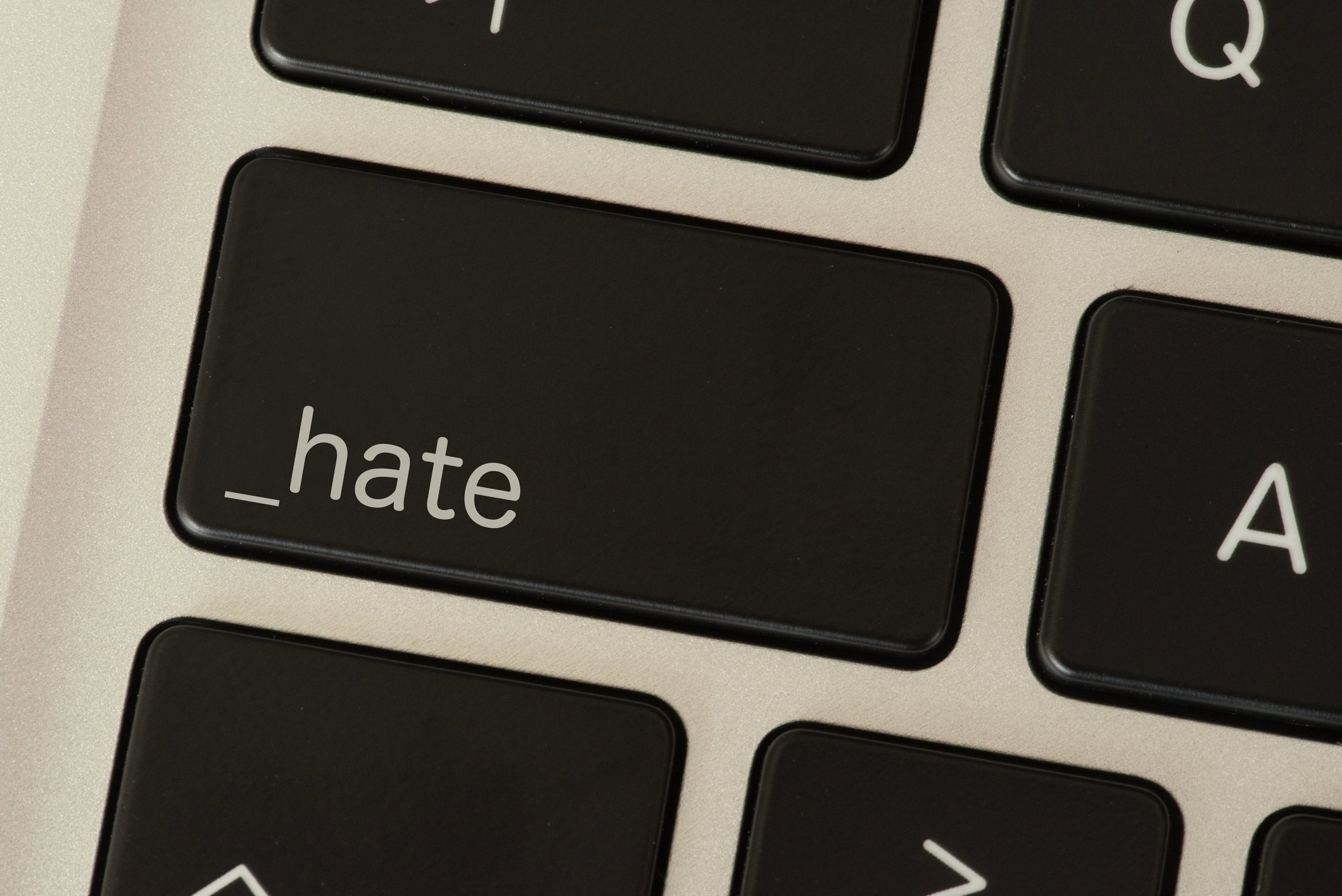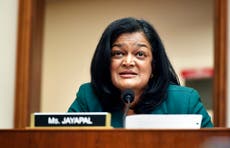Regulation of the internet doesn’t have to stifle free speech – in fact, it can encourage it
Ruth Smeeth, CEO of Index on Censorship, argued this week that proposed ‘online harm’ legislation is a threat to free speech. It is nothing of the sort


Your support helps us to tell the story
From reproductive rights to climate change to Big Tech, The Independent is on the ground when the story is developing. Whether it's investigating the financials of Elon Musk's pro-Trump PAC or producing our latest documentary, 'The A Word', which shines a light on the American women fighting for reproductive rights, we know how important it is to parse out the facts from the messaging.
At such a critical moment in US history, we need reporters on the ground. Your donation allows us to keep sending journalists to speak to both sides of the story.
The Independent is trusted by Americans across the entire political spectrum. And unlike many other quality news outlets, we choose not to lock Americans out of our reporting and analysis with paywalls. We believe quality journalism should be available to everyone, paid for by those who can afford it.
Your support makes all the difference.You would expect the CEO of Index on Censorship to oppose threats to free speech. Surely, though, that should mean being against all threats to free speech – yet in a recent article, “New ‘online harm’ legislation is a threat to free speech”, Ruth Smeeth is oddly selective.
She argues that the government risks “conflating what is already illegal, such as incitement and threat, with speech which we may disagree with, but in a free society is, and should be, legal”.
At present, though, a huge threat to freedom of speech is posed by the prevalence of abuse, bullying and trolling on major social media platforms. This is not simply “speech which we may disagree with”. A report by the antibullying charity Glitch, published last week, documented a further rise in online abuse towards women and non-binary people in recent months. Crucially, the study detailed how many victims of abuse change what they do and say online following incidents of online abuse, with as many as 82.5 per cent of Black or minoritised respondents reporting this impact.
A YouGov poll commissioned by Amnesty a couple of years ago found similar levels of silencing – 78 per cent of British women said they don’t think Twitter is a place where they can share their opinion without receiving violence or abuse.
These stark figures should remind Smeeth that it’s not just over-reaching governments that harm freedom of expression: online abuse is restricting freedom of expression right now.
Smeeth has been on the receiving end of hate speech herself. She’s clearly not let it affect her. But she was lucky enough to come of age as a politician before social media existed, before engaging in politics required using these platforms. You shouldn’t need to have an incredibly “thick skin” to engage in politics. And it’s not going to be good for politics if online abuse introduces another barrier for marginalised groups.
The other threat to free speech, which Smeeth glosses over in her defence of an under-regulated internet, is unaccountable, foreign corporations. In the absence of regulation, they are setting their own rules. Last week, under questioning from MPs on the DCMS Select Committee, TikTok admitted that until recently it had restricted content depicting same-sex relationships – as part of an “anti-bullying policy”.
Meanwhile, Greenpeace USA had its Facebook account suspended last week for several days. Whether these are deliberate, sinister, acts or an accidental glitch of a flawed algorithm is not the main issue – the point is that private companies, headquartered thousands of miles away and with a duty to their shareholders, get to decide the bounds of the UK public sphere.
Currently, we have an internet which reflects the very frontiers of the American libertarian idea of what freedoms and liberties look like. Massive corporations call the shots. Individuals enjoy “free speech”, but only if they’re tough and/or privileged enough to endure the abuse, or their opinions are mainstream enough to not attract the ire of an online mob.
In grappling with the question of what to do about content which is "legal but harmful", no one serious is actually proposing such content be censored by government – that's a straw man. And in opposing regulation per se – that’s picking the wrong battle.
The opportunity is to secure regulation which focuses on setting standards for the companies – not regulation of individual bits of content, or individual users. That should of course include them moving to prevent illegal acts on their platforms.
But it’s also about how they design and operate their platforms as a whole. Left to their own devices the companies will design and operate their platforms to minimise overheads and maximise advertising revenue.
Regulation can require them to additionally address other factors which matter to us as a society, such as reducing harmful abuse and misinformation, or making sure their platforms are inclusive for women and minorities, or safeguarding freedom of speech, and being transparent and consistent in their moderation policies.
How platforms approach anonymity is a great example of how regulation could improve the situation. Anonymity is complicated – it can be crucial to enable a whistle-blower or a dissident to get their message out, but it is also a key tool of an online abuser or peddler of disinformation. Anonymity is therefore a risk factor which requires careful thought and proactive management. But left to their own devices, platforms go for the cheapest option – a laissez faire approach which enables fake accounts and online abuse to proliferate. Effective regulation could require that tech platforms mitigate the risks associated with anonymity, while safeguarding its legitimate uses.
Twenty years ago, it was tempting to imagine the benefits of the internet as a utopia beyond the reach of government – a place where everyone was equal, and everyone could say what they wanted without fear of reprisal. Sadly, that’s not how an under-regulated internet has turned out.
We need regulation. We also need passionate advocates for freedom of expression, like Index on Censorship, to help get that regulation right. It’s time for the freedom of speech crowd to let go of their libertarian opposition to regulation of the internet, stop shroud waving, and instead roll up their sleeves and help work out what good regulation, with all the important checks and balances, will look like.
A former editor of The Independent, Chris Blackhurst is a member of the Advisory Board of Clean Up The Internet, the charity campaigning for government and tech industry action, to increase civility and respect online, and to reduce online bullying, trolling, intimidation, and misinformation



Join our commenting forum
Join thought-provoking conversations, follow other Independent readers and see their replies
Comments